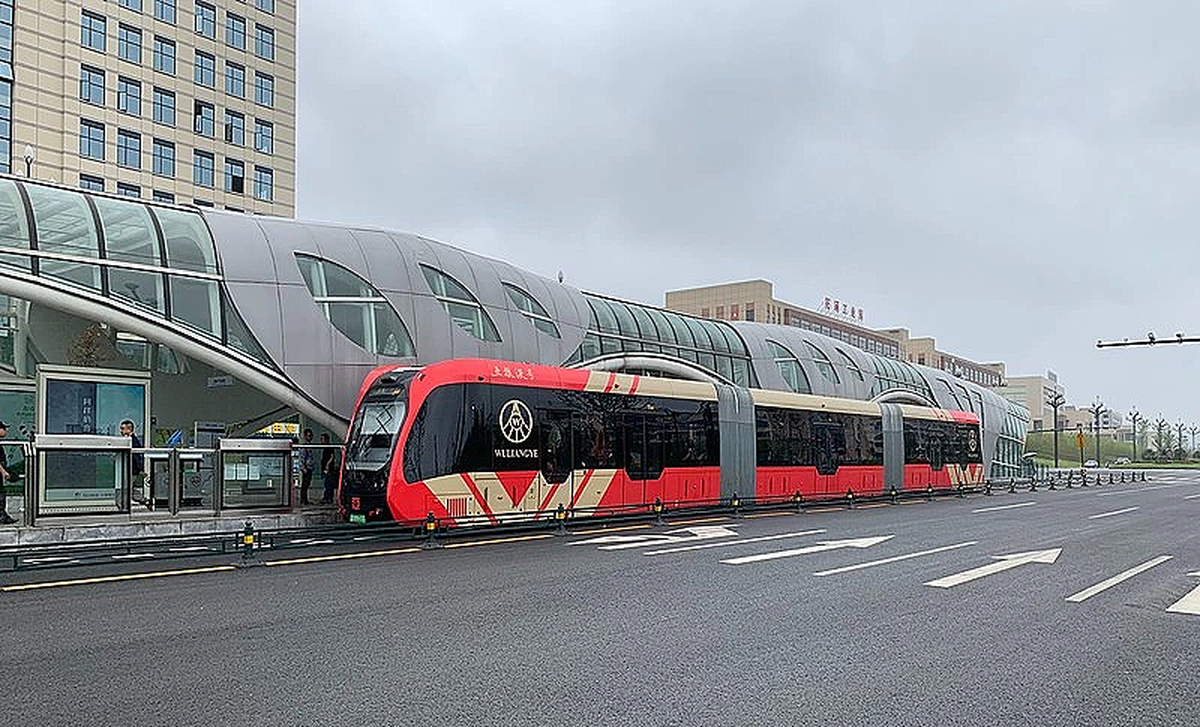21/07/2025
21/07/2025

LAHORE, July 21: Lahore has just rolled out South Asia’s first trackless, solar-powered metro system — an ambitious, high-tech answer to the region’s outdated urban transport. Dubbed the Super Autonomous Rail Rapid Transit (SRT), this sleek electric vehicle is billed as a “subway on wheels,” gliding on ordinary roads without the need for expensive tracks or overhead wires.
In a futuristic twist, the SRT relies on Virtual Track Technology, using GPS, sensors, and digital mapping to stay on course — all without laying a single rail. Think tram meets Tesla, with zero emissions.
A pilot run is already underway near Lahore Airport, drawing curious onlookers and high-level officials from both Pakistan and China — the system’s developer. This is the first time such a vehicle has ever hit the roads in South Asia.
“This isn’t just a test drive,” said a senior Punjab transport official. “This is a test for the future of public transport in Pakistan.”
A Metro Without the Mess
The high-capacity electric buses — capable of carrying 250 to 300 passengers — are set to transform mobility in Punjab and beyond. Unlike conventional metros or Bus Rapid Transit (BRT) systems, the SRT and its future cousin, the Automated Rapid Transport (ART) system, don’t require tracks or elevated lanes — meaning cheaper builds, quicker rollouts, and no ugly overpasses slicing through cities.
The initiative falls under Punjab Chief Minister Maryam Nawaz’s five-year transport master plan, which aims to bring smart, solar-powered mobility to 30 cities across the province.
“This isn’t just infrastructure,” said Maryam. “It’s a leap toward equitable, green mobility for all citizens.”
Phase One: Lahore, Faisalabad, GujranwalaThe first phase will roll out in Lahore, Faisalabad, and Gujranwala, with 10 more cities added each year over the next four years. If the Lahore trial proves successful, full-scale operations could begin as early as 2026 — with potential future expansions to Karachi, Islamabad, and Rawalpindi.
A Cleaner, Quieter CommuteAside from its tech credentials, the SRT promises a dramatic social and environmental impact. Each vehicle could replace up to 100 private cars, slashing air pollution, traffic congestion, and noise in Pakistan’s smog-choked cities.
“This is about climate justice as much as convenience,” said an official involved in the rollout. “It’s about narrowing urban divides and giving people a cleaner, faster way to move.”
The SRT runs like a tram, follows a virtual track with pinpoint precision, yet has the agility of a bus — making it ideal for traffic-clogged, infrastructure-limited cities like Lahore.
The future of Pakistani transport, it seems, is arriving quietly… and on rubber wheels.


